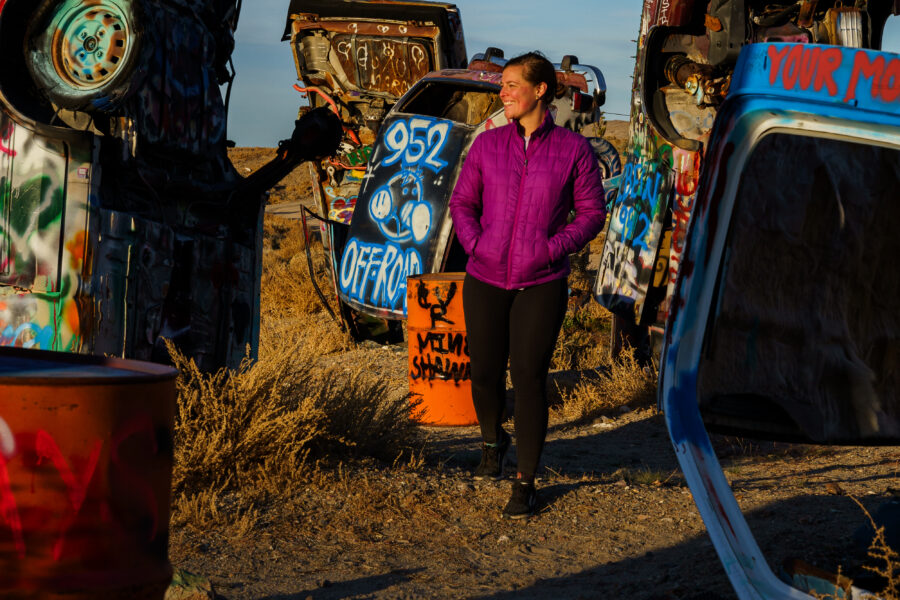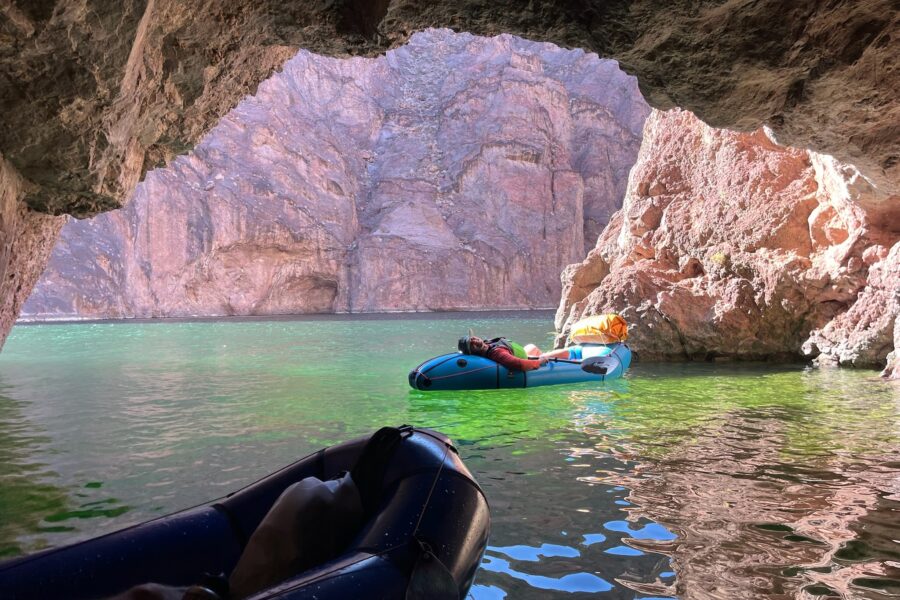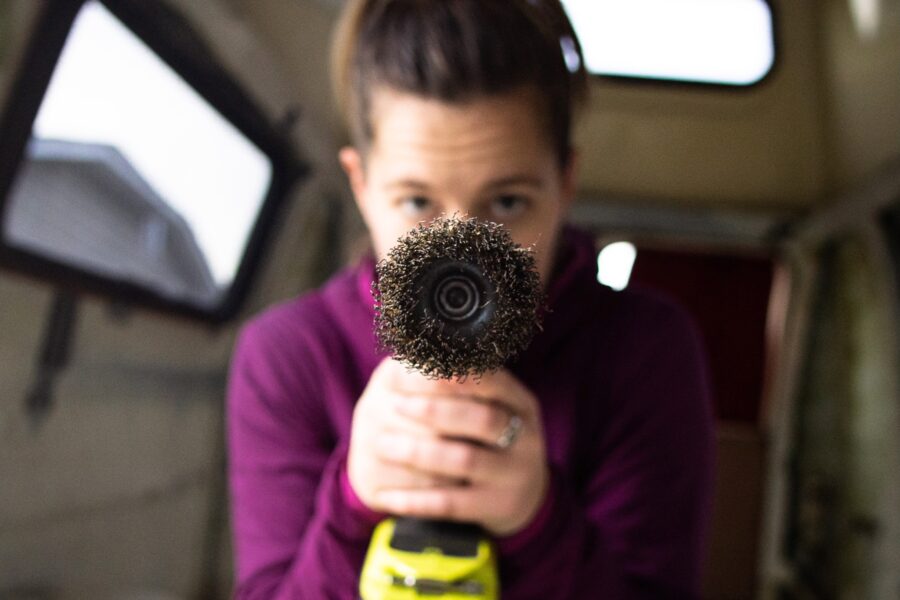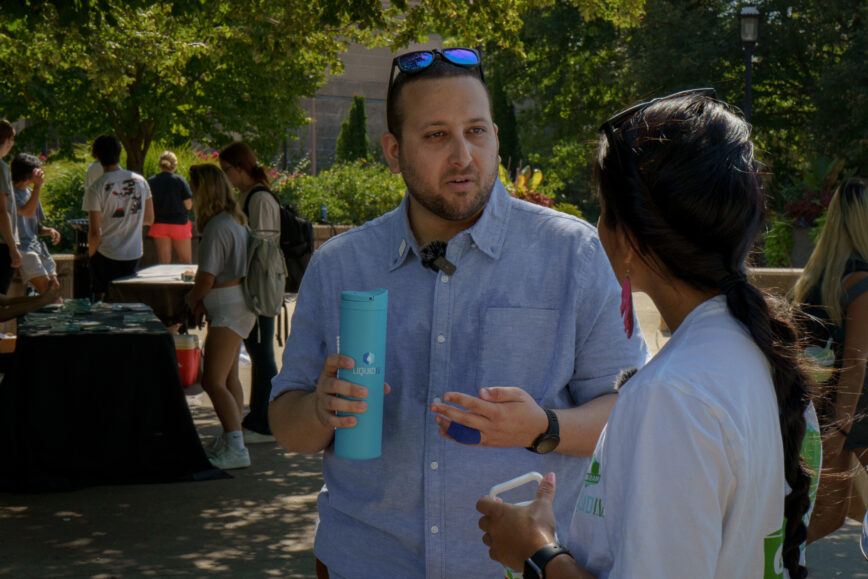
Join us, Liquid IV’s Impact On The Road Team to meet the Latino Climate Council of the Hispanic Access Foundation. We’re off to Columbia Missouri to learn about impaired (contaminated) water sources and who is collecting data to help these waters.
Missouri is facing a massive water crisis. Their drinking water comes from lakes and rivers and 87% of their waterways are considered impaired, which means that they aren’t safe or clean for human use!
The root of the problem is non-point source pollution: any natural or human-made runoff that makes its way to our waterways. This could be fallen leaves from trees, commercial dumping, agricultural pesticides, or general litter. Their water is contaminated and maintaining healthy water quality is a huge issue. For scale, the Missouri River is the 7th most polluted waterway in the United States and it supplies 10 States and 2 Canadian provinces with water, which makes this an international issue!
Tackling the issues facing Missouri and the Missouri River Basin will take a collective effort. The problem is rooted in contamination, much of which comes from large-scale corporations. As individuals, we can take action, but it takes grassroots movements to change policy and create lasting change. One organization at the forefront of combating this issue is the Latino Climate Council.



The Latino Climate Council is a branch of the Hispanic Access Foundation, which is a nonprofit that provides resources to and uplifts Latino leaders across the United States. They have a wide range of programs and initiatives that empower and strengthen individuals and, in turn, their communities & country. The Latino Climate Council focuses on environmental conservation from a foundation of intersectionality.
Angel Colon Santiago is a researcher and Latino Climate Council member. He leads researchers and volunteers in fighting for the protection of their waterways. Some of the volunteers who are helping Angel and his team have been volunteering for over 30 years.
They collect water samples which are then passed on to researchers for analysis. The data gleaned is used to guide policy change for cleaner and safer waterways. We might think collecting water samples every month doesn’t make much of a difference, but the data directly impacts policy that affects 10 States and 2 Canadian provinces.
Our impact grows as more people get involved with cleanups and speak up for policies that prioritize public health and protect our waters.
Their hope is that their work inspires you to learn about the water quality in your area. Climate justice and activism starts with awareness. Once you’re aware of an issue, it leads to further educating yourself on it and possible solutions, which eventually allows you to use that knowledge to guide your actions. No matter where you are or your situation, there are ways to get involved. From clean-ups, and donations to signing petitions, your impact is more significant than you think.
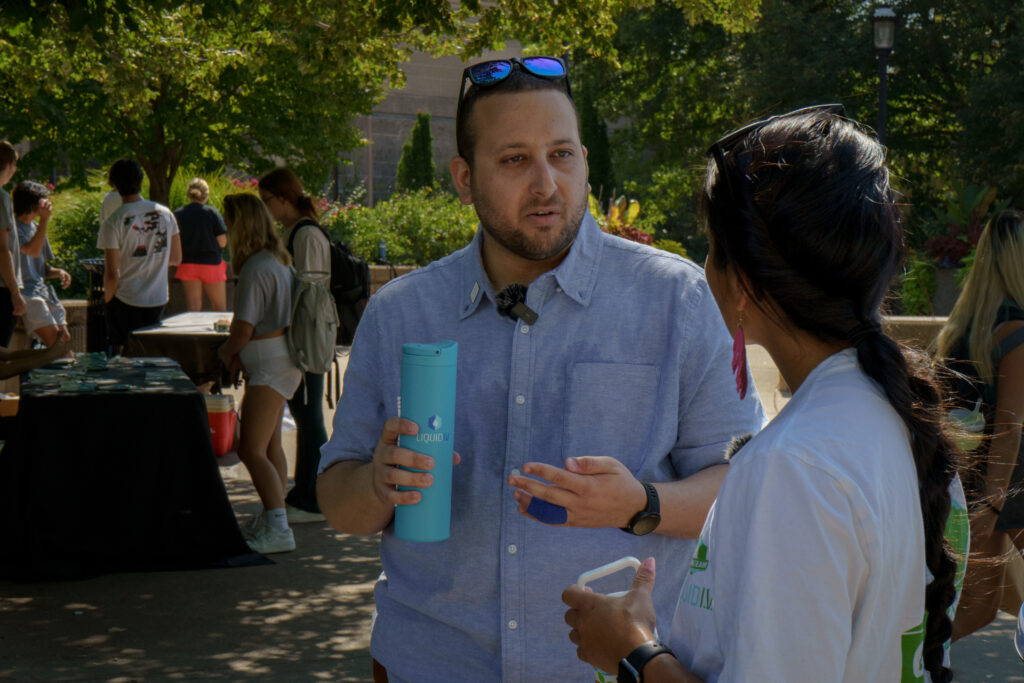
TLDR
- Who: Latino Climate Council of the Hispanic Access Foundation
- What: A sustainability-focused environmental group supported by a larger nonprofit that uplifts Latino leaders in the US
- The Problem: Impaired (contaminated) water sources
- Their Efforts: Collect data from volunteers to drive policy change that prioritizes public health and protects our waters.
- How you can get involved: waterway cleanups and speaking up for policies that prioritize public health and protect our waters.
References:
- https://a-z-animals.com/blog/what-is-in-the-missouri-river-and-is-it-safe-to-swim/#:~:text=Water%20Pollution,agricultural%20runoff%20and%20industrial%20waste.&text=The%20Missouri%20River%20faces%20a,waterway%20in%20the%20United%20States.
- https://environmentamerica.org/missouri/wp-content/uploads/2012/01/Top_Ten_Frightening_-Facts_About_the_-Missouri_River_2010.pdf
- https://www.iwla.org/water/regional/missouri-river
- https://www.usbr.gov/climate/secure/docs/2021secure/basinreports/MissouriBasinChapter.pdf
- https://www.epa.gov/newsreleases/epa-report-shows-disproportionate-impacts-climate-change-socially-vulnerable
- https://www.hispanicaccess.org/about
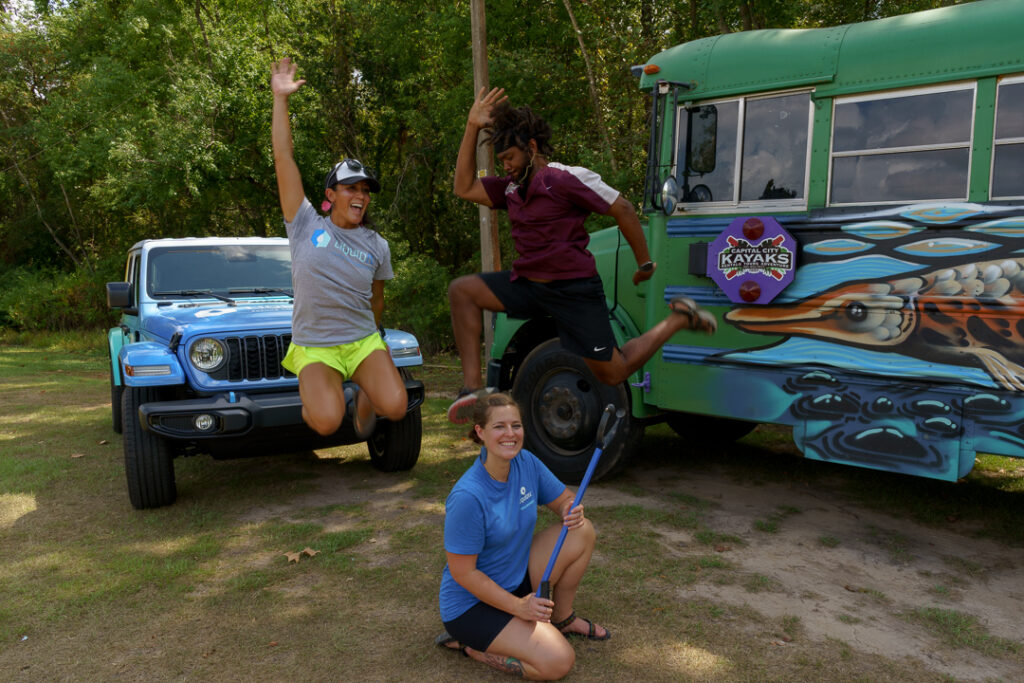
JOIN US AT OUR NEXT STOP!
We’re headed to Jackson Mississippi to learn about their multifaceted approach to protecting our water.

